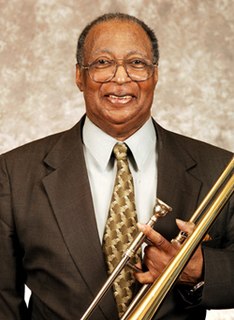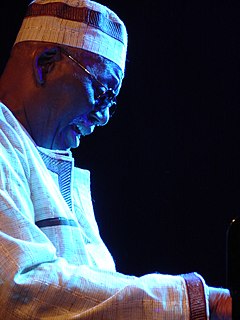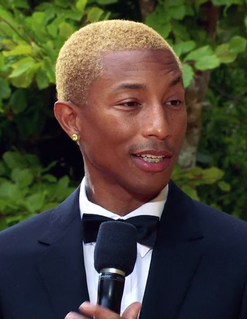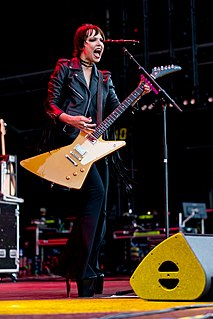A Quote by Miles Davis
Trane was the perfect saxophonist for Monk's music because of the space that Monk always used. Trane could fill up all that space with all them chords and sounds he was playing then.
Related Quotes
Monk was a gentle person, gentle and beautiful, but he was strong as an ox. And if I had ever said something about punching Monk out in front of his face - and I never did - then somebody should have just come and got me and taken me to the madhouse, because Monk could have just picked my little ass up and thrown me through a wall.
It was Miles Davis who took me to New York, and Coltrane was in the band, as well as Paul Chambers, Philly Jo Jones. 'Trane took me aside, and, of course, we did Blue Trane, which was my first album-and that started everything. He had confidence that I didn't have; he saw something that I didn't see.
At first I didn't understand what [Thelonious Monk] was doing, but I went back again, and what I can say about Monk is that I heard ancient Africa in his music. When he played, it was like a ballet. He captured the sound of the universe. Monk could take a triad, a simple chord, and make it sound dissonant. I'm sure that element he had in his piano was part of the two years he spent traveling with his mother in gospel music in the tent shows.
[Charlie Parker] was kind of a sponge and intrigued by it all.That's similar to what Phil [Woods] told me about Bird, too. Like he was into cooking. He was just into a lot of things. Yeah, it's about dealing with bebop and jazz and Trane [John Coltrain] and post-Trane and knowing the history. But you've got to live. You have to experience things. Know something in this world. So it was a very deep education about what it means to try and be an artist.
I think minimalism is something I just got attracted to just in general because I like the empty space, if you think about it, like there's a lot of empty space. So there are sounds there, there are chords, like coordinates, to sort of tell you where the emotion is going, but then it leaves so much room for the voice to do other things.
In 2009 I went up on the space shuttle. I was in space for 16 days and docked at the space station for 11 days. The entire crew did five space walks, of which I was involved with three of them. When you're doing a space walk, you always have a buddy with you. It's a very dangerous environment when you're doing a space walk.
Working with Monk brought me close to a musical architect of the highest order. I felt I learned from him in every way--through the senses, theoretically, technically. I would talk to Monk about musical problems, and he would sit at the piano and show me the answers just by playing them. I could watch him play and find out the things I wanted to know. Also, I could see a lot of things that I didn't know about at all.
Monk's music is often defined as enigmatic, eccentric and humorous - as if it had little to do with the pain he may have endured to create his art. But I believe Monk routinely shared his history with his audience, no matter how unpalatable that history was, and it is for that very reason that his music connects with people around the globe.

































